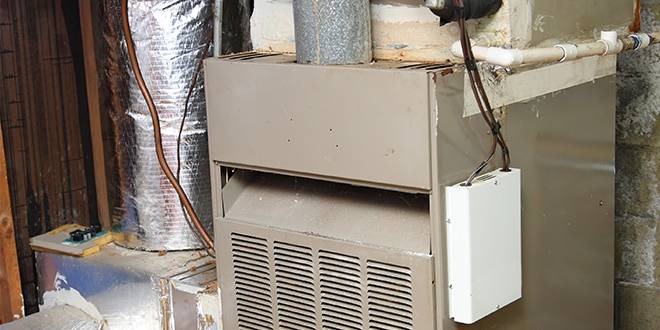
In Yuba City, CA, homeowners and businesses often face the decision of choosing the right heating system. With energy efficiency and cost-effectiveness in mind, many are considering the switch from oil to natural gas furnaces. Let’s explore this option in detail.
Understanding the Conversion Process
Converting an oil furnace to natural gas involves several steps and considerations. Here’s what you need to know:
Assessment of Current System:
- Evaluate Age and Condition: The lifespan of an oil furnace is typically around 15-20 years. Assessing its age helps determine if it’s worth converting. Check for signs of wear and tear, efficiency issues, or frequent repairs.
- Conversion Feasibility: Not all oil furnaces can be converted to natural gas. The heat exchanger must be compatible with natural gas combustion. An HVAC professional can determine if your current system can be adapted or if a new furnace is necessary.
Gas Line Installation:
- Existing Infrastructure: Verify if natural gas lines are already available in your area. This can be done by contacting your local gas company.
- New Line Installation: If there are no existing lines, you’ll need to factor in the cost and feasibility of installing new gas lines. This includes obtaining permits and ensuring compliance with local regulations.
Choosing the Right Equipment:
- Conversion Burner vs. New Furnace: A conversion burner allows you to modify your existing oil furnace for natural gas use. However, if your furnace is old or incompatible, purchasing a new natural gas furnace might be more efficient.
- Energy Efficiency and Size: Select a furnace with a high Annual Fuel Utilization Efficiency (AFUE) rating. Also, ensure the size of the furnace is appropriate for your space to maximize efficiency and comfort.
Professional Installation:
- Licensed Professionals: Always hire certified HVAC technicians for the conversion. This ensures safety, compliance with local codes, and proper installation.
- Venting and Electrical Connections: Natural gas furnaces require different venting and electrical setups compared to oil furnaces. Professionals will ensure these are correctly and safely installed.
Cost Analysis:
- Upfront Costs vs. Long-Term Savings: While the initial cost of converting to natural gas can be high, it often leads to lower operating costs due to natural gas’s lower price and higher efficiency.
- Rebates and Incentives: Many regions offer incentives for installing energy-efficient systems. These can significantly offset the initial investment.
Benefits of Converting to Natural Gas:
- Cost Efficiency: Natural gas typically costs less than oil, leading to lower heating bills.
- Environmental Impact: Natural gas burns cleaner than oil, reducing your carbon footprint.
- Reliability: With natural gas, you’re connected to a continuous supply, eliminating the need for fuel deliveries.
- Maintenance: Natural gas systems generally require less maintenance than oil systems, saving time and money.
Potential Challenges:
- Initial Investment: The cost of conversion, including equipment and installation, can be substantial.
- Availability: In some areas, natural gas might not be readily available, limiting conversion options.
Is Conversion Right for You?
- Heating Costs and Environmental Goals: Evaluate your current heating expenses and how much you could save with natural gas. Also, consider your environmental priorities.
- Long-Term Benefits: Weigh the long-term energy savings and reduced environmental impact against the upfront costs to determine if conversion aligns with your goals and budget.

Converting an oil furnace to natural gas can be a wise decision for many in Yuba City, CA, offering cost savings and environmental benefits. However, it requires careful consideration of your current system, costs, and the availability of natural gas in your area.
FAQ: Pros and Cons of Oil vs Natural Gas Furnaces
1) What are the main advantages of using an oil furnace?
- Higher Heat Output: Oil furnaces often produce more heat per BTU than natural gas furnaces.
- Availability: In areas where natural gas is not readily available, oil can be a reliable alternative.
- Efficiency: Modern oil furnaces can be very efficient, with some models reaching up to 90% efficiency.
2) What are the disadvantages of oil furnaces?
- Higher Fuel Costs: Oil is generally more expensive than natural gas, leading to higher operating costs.
- Storage Requirements: Oil furnaces require on-site storage tanks, which can be a disadvantage in terms of space and maintenance.
- Environmental Impact: Burning oil produces more greenhouse gasses compared to natural gas.
3) What are the benefits of natural gas furnaces?
- Cost Efficiency: Natural gas is usually cheaper than oil, offering lower heating bills.
- Convenience: With natural gas heat, there’s no need for fuel storage as it’s delivered through a pipeline.
- Cleaner Burning: Natural gas emits fewer pollutants and greenhouse gasses than oil.
- Maintenance: Generally, natural gas furnaces require less maintenance than oil furnaces and an old oil tank would.
4) Are there any drawbacks to natural gas furnaces?
- Installation Costs: If your home isn’t already equipped with a natural gas line, the installation can be costly.
- Availability: Natural gas isn’t available in all areas, particularly in remote or rural locations.
- Lower Heat Output: Natural gas furnaces typically produce less heat per BTU compared to oil furnaces.
5) How do the safety aspects of oil and natural gas furnaces compare?
- Oil Furnaces: They are generally considered safe as oil is not explosive and oil furnace malfunctions often result in a shutdown rather than a fire.
- Natural Gas Furnaces: While natural gas is flammable, modern furnaces are equipped with safety features to minimize risks. However, there’s a small risk of gas leaks, which can be hazardous.
6) Can I switch from an oil furnace to a natural gas furnace?
- Yes, it’s possible to switch from oil to gas heating. This involves assessing your current system, installing a gas line (if necessary), and choosing the right equipment. It’s important to consult with a professional to understand the costs and logistics involved.
7) Which is more environmentally friendly, oil or natural gas furnaces?
- Natural gas furnaces are generally more environmentally friendly. They produce fewer emissions, including carbon dioxide, sulfur dioxide, and nitrogen oxides, compared to oil furnaces.

🌟 Ready to switch from oil to gas for a more efficient heating system? 🏡🔥
Contact Good Guys Heating and Cooling today! Our expert team will guide you through every step of converting your oil furnace to natural gas, ensuring a smooth and cost-effective transition. Experience the comfort and savings of a natural gas furnace with our professional installation and service. Call us now for a warmer, greener home!

